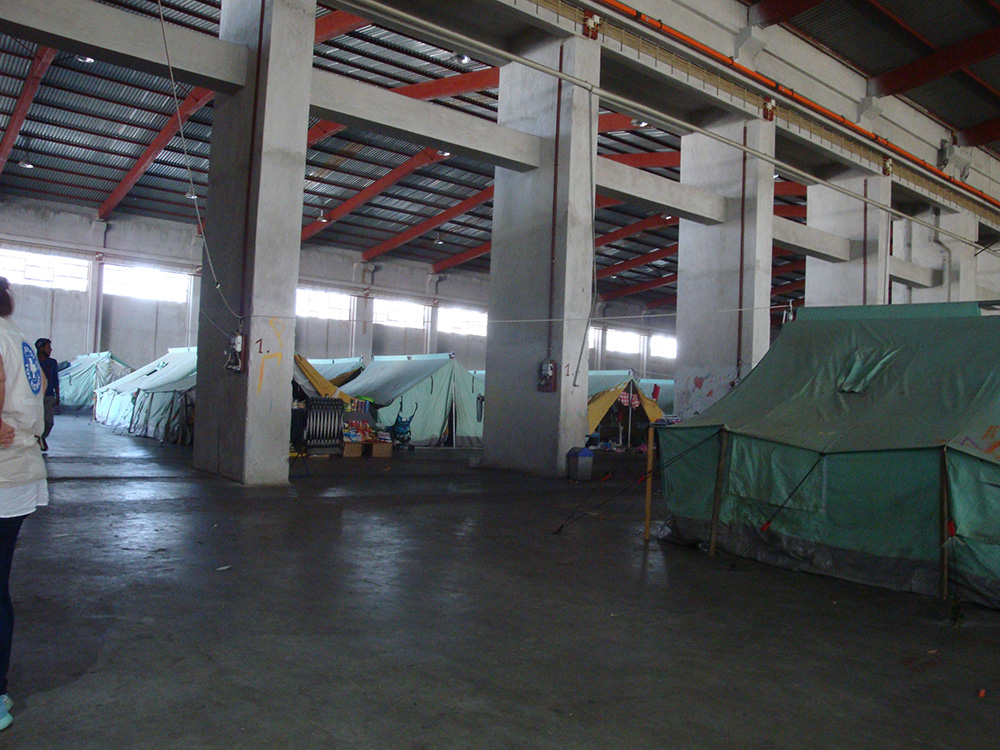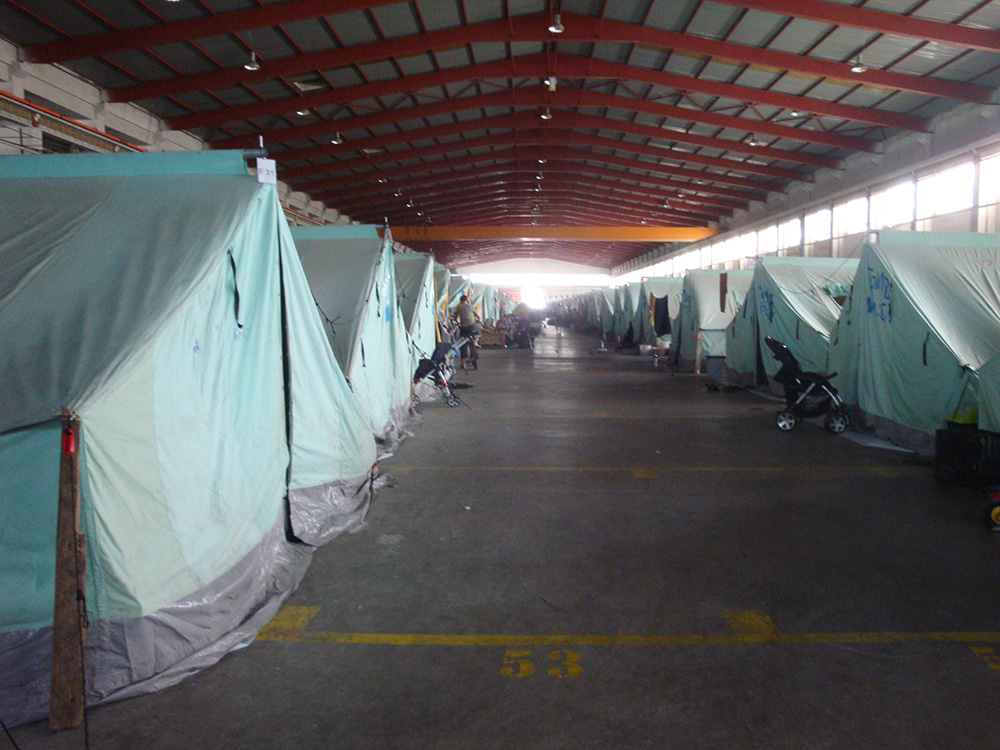Saturday was my fourth day of voluntary work with (mainly) Syrian refugees and my first at Oreokastro
.jpg?width=187&height=250)
camp. This must be a tough place to live: all the tents, rows and rows of them, are pitched inside a cheerless abandoned factory. Since May 2016 it has accommodated up to 2500 refugees.
Working here near Thessaloniki in Greece, Doctors of the World have developed a great way of organising things. A nurse, with a translator, marshals the patients outside, establishing the urgency of the problem, offering advice and/or paracetamol for trivial symptoms and giving patients who need or want to see the doctor a ticket number to forestall arguments about who should be seen before whom. Then patients come in to see me, or the nurse (if dressings are needed) or the midwife if the problem is relevant to her skills. This takes a bit of flexibility as we work in one small room with only two examination couches and a couple of skimpy screens. My interpreter and I worked steadily through the constantly replenishing queue of patients, dishing out pain killers and cough syrups and antibiotics and advice.
After an hour or so Waheed, one of the translators, stepped into the clinic saying ‘Emergency – there is an emergency. In tent A33.’ In four strides, he’d crossed the small clinical space, picked up the bulky emergency bag, checked he had my attention and charged off across the factory floor and down one enormously long avenue between the tents. Dominique, one of the nurses, gave me examination gloves as I made to follow him. Waheed was jogging so I broke into a sedate run too, hoping that A33 wasn’t at the far end of the gigantic building.
I had absolutely no idea what kind of emergency we were going to so I was delighted to realise that Waheed and I were now accompanied by the super-competent Dominique, and also Caroline, the team midwife. They had been in post some months and knew their way around. It was great to have their professional support. Caroline spends much of her time with the pregnant and recently delivered women and knew the family in the relevant tent.
By the time I’d knelt down beside the patient and started to take in the situation, Dominique already had the emergency bag open and was checking the blood pressure of our young patient, while Caroline was calling her by name. Our patient was flat on her back. Tears trickled into her ears. A woman I assumed to be her mother knelt beside her, and was acting as if she was dead. These people know about death. I tried not to be alarmed by her reaction as I was sure that calm reassurance was needed here.
The patient was a good colour, breathing easily but too fast and seemed semi-conscious. Interested and concerned neighbours crowded around and leaned over to see what was happening. We were forced to close the tent flaps and plunged ourselves into half-light. Caroline managed to check the patient’s blood sugar commenting that this girl is usually so cheerful. Her collapse seemed especially surprising, out of character. ‘Shall we call an ambulance?’
It took me a while to understand what had happened. The girl had been play fighting with her sister and accidentally punched herself in the neck. I guess that she must have hit the carotid area which can cause a faint, and the resulting collapse had happened so unexpectedly that it brought on a panic reaction. Certainly the whole family were in turmoil, and the girl’s mother was rocking with distress as she wiped away her own and her daughter’s tears.
Caroline continued to talk to the girl, reassuring her and making her feel safe. Slowly she came back to consciousness. It turned out that she had missed breakfast and had drunk very little that day so she suffered a combination of dehydration, anxiety and an odd reaction to a blow to the neck. She probably had a urinary infection too. Caroline told me that there are some issues about access for woman to the communal toilets. Bored adolescent men tease the women and make them reluctant to go to the loo alone, so they restrict what they drink, hang on too long and suffer a lot of urinary problems.
This young woman must have experienced such awful things in the years before she arrived in the safety of the refugee camp in northern Greece and it is little wonder she had suffered such an anxiety attack. Her close family had probably seen relatives die in front of them so why wouldn’t they worry? They have all suffered too much. And they continue to suffer.
My next piece on refugee health is here :
Oreokastro camp

